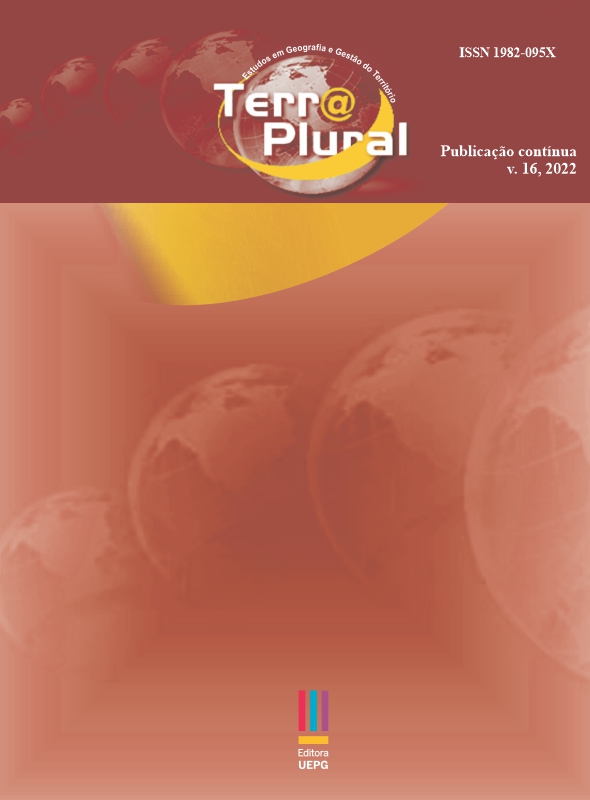Bibliometric analysis of the academic production on Geodiversity and related themes in the Federal Universities of Brazil
Keywords:
Geodiversity, Geoconservation, Geotourism, Geological HeritageAbstract
Research on geodiversity has been increasing in recent years, both
internationally and in Brazil. This theme refers to the abiotic elements of the planet and has been the subject of studies since the 1990s, having developed nationally in the early 2000s. This work analyzed the academic research on geodiversity and related themes carried out in Brazil from 2000 to 2021, through a systematic search and
bibliometric research in libraries, institutional repositories, and digital collections of the 69 Brazilian Federal Universities (HEI) and in the Brazilian Digital Library of Thesis and Dissertations (BDTD). We searched the terms ‘geodiversity’, ‘geoconservation’, ‘geoconservationist/s’, ‘geotourism’, ‘geopark/s’, ‘geopatrimony’, ‘geosite/s,’ and ‘geological heritage’. It was found 209 papers in 36 universities distributed in all regions of the country, with emphasis on the Northeast region, with 73 research in 9 institutions, followed by the Southeast region (65 papers in 12 HEIs), South (51 papers in 6 HEIs), Center-West (13 research in 6 HEIs). and North (7 publications in 4 HEIs). Regarding the number of papers, the Federal Universities of Minas Gerais (25), Pernambuco (20), Ceará (18), and Rio Grande do Sul (16) stand out, with the predominant being Dissertations (106), followed by Theses (57) and Final Papers (46). Written since 2003, there was a significant increase as of 2012, with 2016 standing out,
and a decrease in 2020. Regarding the frequency of use of the keywords selected in the research, ‘geodiversity’ and ‘geoconservation’ prevailed. We highlight the master’s and doctoral courses in Geography, and undergraduate courses in Geology.
Downloads
Downloads
Published
How to Cite
Issue
Section
License
Revista Terr@ Plural will obtain the auctorial rights for all published texts. This also implies that the text can be published anywhere in the world, including all rights on renewal, expansion, and dissemination of the contribution, as well as other subsidiary rights. The authors get permission to publish the contribution in other media, printed or digital, it may be in Portuguese or translation since the publication is credited to Revista Terr@ Plural. It allows the self-archiving of published articles in institutional repositories, thematic repositories, or personal web pages in the pdf version downloaded from the journal's site.















